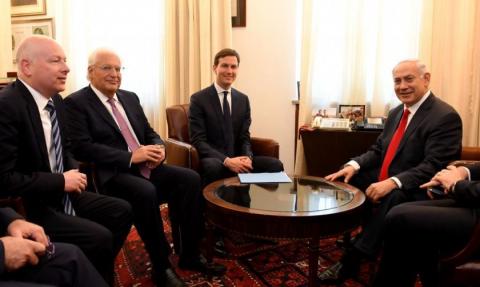The Palestinian State Plan
President Donald Trump’s representatives must learn from the experience of their predecessors to avoid falling into the same old traps. First, the outline must present the final goal — the establishment of a Palestinian state alongside Israel — and it must include proposed borders between the two countries. There is no point in beginning open negotiations without an agreement on a road map and a schedule. An outline that ignores the need for a political solution to a conflict that is nationalist in nature, that attempts to copy solutions from the world of business and meaningless ceremonies, will fail. It is also important that the initiative be based on the principles that underlay previous negotiations, from Madrid and Oslo to Annapolis and the talks with then-Secretary of State John Kerry. It would also be appropriate to relate to the Arab Peace Initiative. There is no other way to get Arab nations onboard.
The White House officials said they plan to present the details of the proposal to the public after submitting it to leaders in the region. The public exposure is critical, since it will force Netanyahu and Abbas to respond publicly to the principles put forth by Trump. One of the serious mistakes of the Obama administration was that its discussions with Netanyahu and Abbas were conducted in secret, allowing them to avoid presenting clear positions and explanations to their respective nations.
Netanyahu understands that his agreement to discuss the establishment of a Palestinian state alongside Israel as part of the framework could lead to the dismantlement of his political partnership with Education Minster Naftali Bennett and an internal split within Likud. The test for the Trump administration will be in its determination to advance the “ultimate deal” in the Middle East, despite the stubbornness of the two sides and at the necessary price of a political change in Israel.
Photo:Trump's special envoys Jared Kushner and Jason Greenblatt meet PM Benjamin Netanyahu, with Ron Dermer and David Friedman, in Jerusalem. June 21, 2017Matty Stern/U.S. Embassy Tel Aviv.

